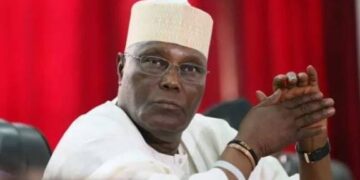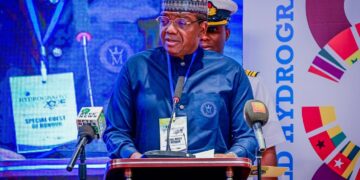By Ijanada Jantiku
Abraham Maslow’s hierarchy of need theory puts shelter as one of the basic needs of man; next to air, food, water and sleep. In order words, housing is an important aspect of people’s well-being which cannot be over looked or over emphasised. And though everyone wants to own a good house, housing deficit and affordability continue to be major limiting factors to home ownership in Nigeria.
A recent study of housing situation in Nigeria put existing housing stock at 23 per 1000 inhabitants. The country’s housing deficit as at December 2018 was estimated at a staggering 20 million units which is about 15.0 per cent increase from the figures in January 2017.
Over the past few years, governments in this country have attempted to shore up the housing deficit across the country with little success. In the light of this, the Muhammadu Buhari-led administration has launched its Social Housing Programme; one of the components of the National Economic Sustainability Plan (NESP) designed by the Vice President Yemi Osinbajo-led committee constituted by President Buhari to cushion the effects of COVID-19 on Nigerians.
The Social Housing Programme targets the construction of 300,000 houses for low-income earners through the social housing scheme. It aims at building affordable houses across the country for the masses including those earning as low as N30,000 a month. While other higher income classes are covered in this housing program, this is the first time in the public provisioning of housing to the people that the minimum wage earners are given considerations.
The scheme will make available hundreds of houses across the 36 states of the Federation and the FCT. So far, the programme is set to kick start in Abuja while about 20 states have indicated interest in participating in the scheme.
The project which is estimated to cost N317 billion is not another contracts opportunities for the high and mighty. The program itself has economic impartation inherent in it; only domestic professionals in the building industry below 35 years are qualified to apply for contracts in the program and would also be availed loans to execute the contracts. There will also be mortgage facilities available for interested subscribers and the government has already put up a template for a level playing field for interested Nigerians just like it did with the ‘survival fund’, when it set up an open portal for the selection process.
Good news is, the project is people oriented; it will provide at least 1.5 million homes for Nigerians, about 1.8 million jobs for Nigerian youths and give support to the local manufacturing and building materials industry to stimulate housing delivery and job opportunities for local artisans and build environment for professionals. The main thrust of the programme is to lift people out of poverty and offer them a better life; essentially it is working with those low income earners, (artisans, labourers) at the lower level working in the housing sector who are earning on a daily basis and have been affected by COVID-19. People who will have the opportunity to participate in the project would earn a minimum of N75,000 a month as labourers. I can only imagine the boost this will give to our economy.
The Social Housing Programme is not one of those meresay political promise of past administrations, this government has already made commitment to the actualisation of this program and also put mechanism in place to ensure that the process of selecting beneficiaries is transparent and properly complied with, just like it did with the survival fund and other programmes under the Economic Sustainability Plan (ESP). The use of BVN, online portal and mode of Identification would help reduce the abuse of those planning to cheat the programme from getting to the target population. It is interesting that the Central Bank is releasing a cumulative maximum limit of N200bn facility for the first tranche of the housing scheme to provide construction finance facility as part of the Economic Sustainability Plan of 2020.
Furthermore, the government has made it vehemently clear that the scheme is not meant for politicians or highly placed persons, but for the masses who ordinary cannot afford to get a house at one go. To ensure that low income earners benefit from the scheme, the Family Homes Fund (FHF) has partnered with the Co-operative Federation of Nigeria, the body that oversaw all cooperative societies in Nigeria; artisans like Keke riders, mechanics, and carpenters, among others are part of the cooperatives and can acquire a one-bedroom house for as low as N2million and pay for it over a period of 15 to 25 years.
Also worthy of note is the job creation aspect of the project; young men and women who are builders, architects, civil engineers will be fully engaged in the project. A lot of the building materials will be locally fabricated, especially the windows, doors and other components of the houses. Cement manufacturers in the country have agreed to provide discounts in support of the Federal Government’s mass housing project.
This proves government’s commitment to the cause of the less privileged Nigerians and offers a ray of hope to the masses. Kudos to the President for ensuring that decent accommodation are not just available but within the reach of practically everyone. There has never been a people focused government as this. The Buhari Administration will be leaving a great legacy of achievement in public service by assuring an efficient execution of housing both the poor and rich Nigerians alike.
































